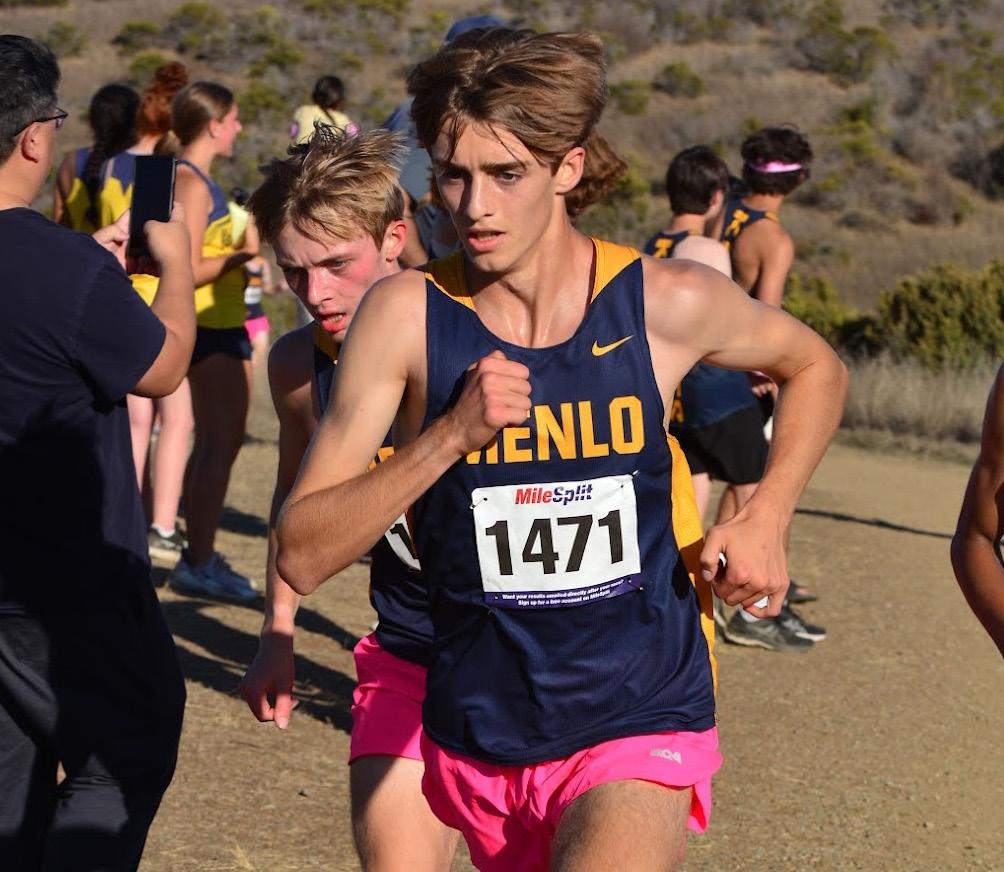
3 minute read
Students Start New STEM Programs After MBEST Disbands
by ANDREA LI
When scheduling assemblies, Ferrell accepts suggestions from faculty and students. Two recent assemblies were run by student clubs: the National Coming Menlo’s Bridge to Engineering, Science and Technology was disbanded earlier this spring. Although Upper School science teacher Dr. Nina Arnberg previously served as the club’s director, the program began a few years prior to her arrival in 2015, under former Upper School mathematics and engineering teacher Dr. Joanie Banks-Hunt.
Advertisement
Banks-Hunt initially created the program in order to introduce more students to Whitaker Lab. “Dr. Joanie Banks-Hunt [...] identified an opportunity to build a program with a goal of having the students who utilized the Whitaker Lab be more reflective of the overall Menlo community,” Arnberg said.
Meanwhile, Arnberg further focused MBEST’s goals on increasing interest in STEM for female-identifying students.
“My direction of the MBEST program sought to foster enthusiasm and passion for [STEM] and to create confident, skillful leaders in STEM fields, with a particular emphasis on female-identifying students,” Arnberg said.
According to Arnberg, BanksHunt sought to provide students in the program with a community of teachers, role models and peers who all strove for gender balance in STEM.
Building off of Banks-Hunt’s goals, MBEST also provided students with more access to resources such as Whitaker Lab. “Since MBEST’s inception, students [...] gained more access to opportunities in Whitaker which include freshman rotation, a variety of electives for students in grades 10-12, permanent space for middle school instruction and the expansion of student-led opportunities like Robotics and Maker Club,” Arnberg said.
To do this, MBEST held workshops for Upper and Middle School students. According to Arnberg, workshop themes were decided by the student leadership team of MBEST; previous workshops explored topics like electric circuits and medicine. “Workshops also invited guest speakers — either working professionals in STEM [or] Menlo students — to share their experiences and leadership in STEM,” Arnberg said. “The general format included an opening speaker, hands-on, inquiry-based activity led by the student leaders and space for building community across grade levels,” Arnberg added.
A transition to full-time instruction was what motivated Arnberg’s decision to disband MBEST. Despite this, Arnberg’s continues to teach her classes with the goals of MBEST in mind. “I will continue to foster a curiosity for, and belonging to, science through teaching core science classes, as well as [continuing] to provide opportunities for female-identifying students to build confidence and connection,” Arnberg said.
Senior Aly Gregory was disappointed by the news of MBEST’s disbandment. “I have been a part of MBEST since I was in sixth grade, so hearing about its dissolution was really shocking at first [...] A lot of [MBEST members] developed a passion for STEM because of MBEST and its opportunities,” Gregory said. “It was upsetting knowing that incoming students wouldn’t get to experience the workshops, events and resources that MBEST provided.”
Junior Dorothy Zhang, who was on the student leadership team for MBEST, was similarly disappointed by MBEST’s recent dissolution. Zhang believes that MBEST provided a lot of opportunities for both upperclassmen and underclassmen. “I thought [MBEST] was a really good opportunity for upperclassmen to learn to teach and create workshops,” Zhang said. “[It was] also a good opportunity for underclassmen to just learn more and use the Whitaker Lab, which I thought was a really cool resource.” similar sentiments about the importance of MBEST for fostering connections between the Upper and Middle School.
“I think MBEST is an important club to have at Menlo because it helps bring the Middle School and Upper School together,” Crocker said. “Plus, it champions women in STEM and helps introduce girls to STEM at a young age.”


In response to the program’s disbandment, both Zhang and junior Sanaa Kapur, as well as other former MBEST directors, are working together with Arnberg’s help to create a similar program. Kapur hopes to foster a sense of community within this program. “Many of the directors from last year [...] are still looking forward to spreading our passion for engineering and science,” Kapur said. “We wanted to create a space for middle and upper schoolers to connect and form community [...] To me, these were the most important parts of MBEST.”
However, the new program will not be entirely identical to MBEST. “Our new version of MBEST is more focused on the Saturday workshops where we provide hands-on opportunities in science and technology for girls. [...] We won’t be able to continue some of the other internship programs,” Kapur said.
Looking back, Arnberg is proud of MBEST’s legacy. “I am proud of the impact that MBEST has had on our community of students and adults and continue to work with students who have built leadership roles through MBEST’s support,” Arnberg said.









